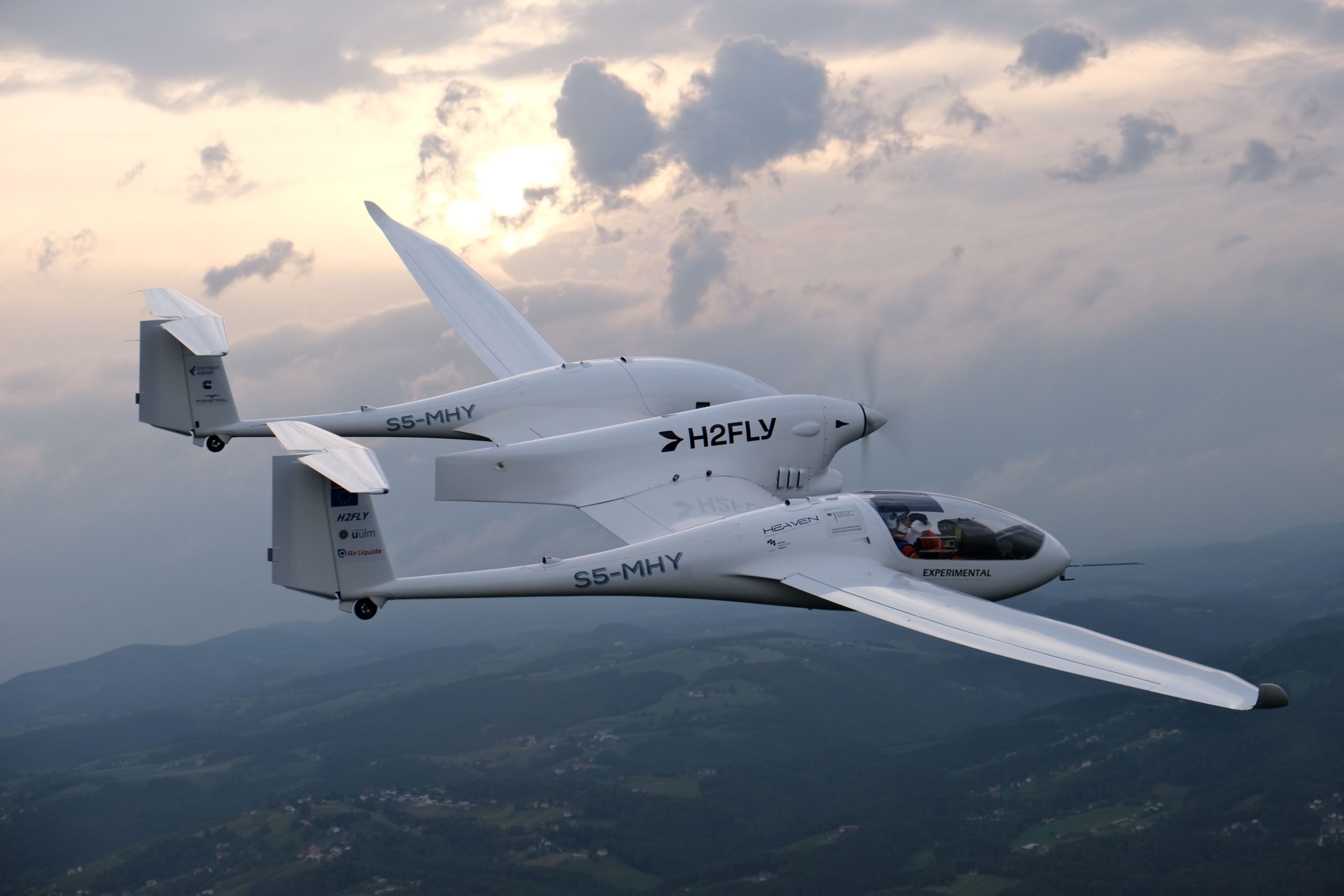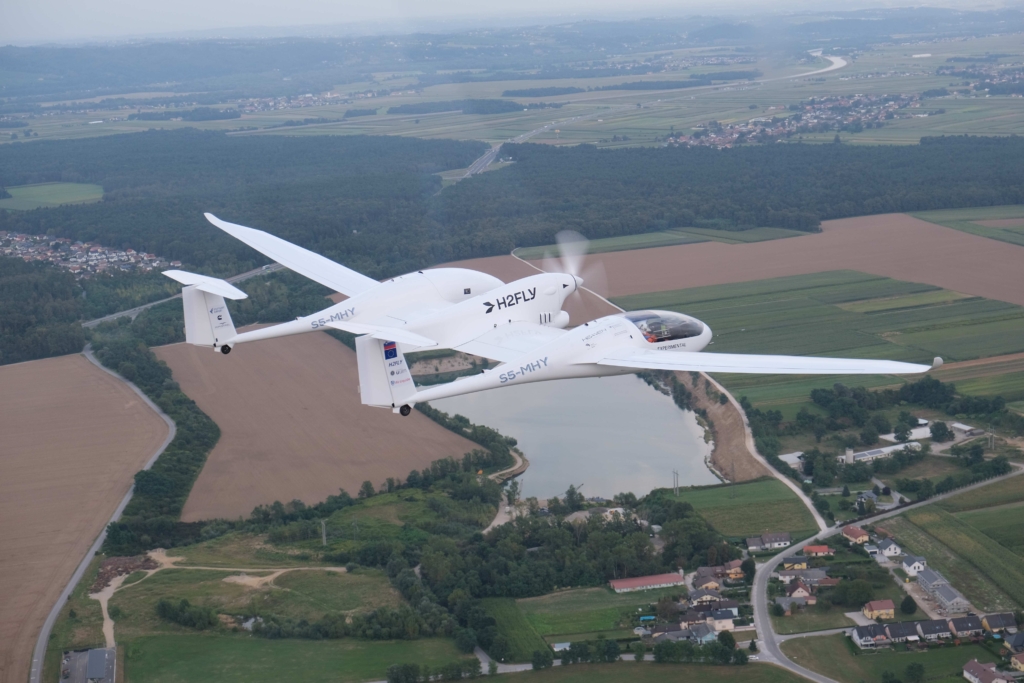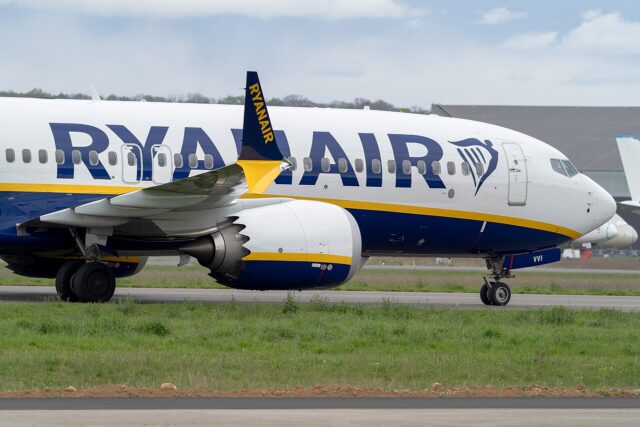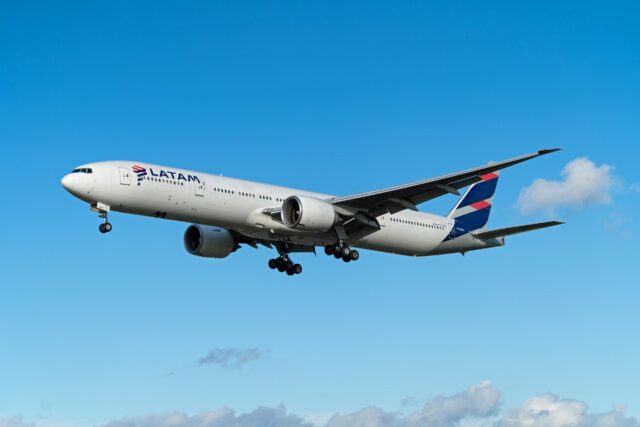H2FLY seeks aircraft partners as it pivots from research to hydrogen-electric technology supplier

November 3, 2025

When it comes to hydrogen-powered flight, H2FLY has long been one of Europe’s quiet success stories. Born out of the German Aerospace Centre (DLR), the Stuttgart-based company has spent more than a decade proving that hydrogen-electric propulsion can safely power real aircraft. Now, as CEO Ralph Müller explains, the company is shifting from research pioneer to commercial technology supplier.
“We’ve reached a stage where early research and demonstration have validated everything we modelled,” Müller told Aerospace Global News. “The assumptions were right. We’ve collected data on efficiency, power and reliability, and now we’re being asked not for prototypes, but for production-ready systems.”

Müller noted a shift in the market, into a position where hydrogen fuel cells are becoming more relevant. The proliferation of not just CTOL and eVTOL electric aircraft but also uncrewed systems of all shapes and sizes presents a solid business case for hydrogen cells, which could provide off-grid charging solutions for a variety of platforms.
A proven hydrogen fuel cell system for electric aircraft
H2FLY’s fuel cell systems have already passed proof-of-concept testing for all major components, including software. The next phase, Müller said, is about development for reliability and certification readiness.
“This stage will last around two to three years, depending on the application,” he explained. “We’re targeting CS-23 aircraft first – smaller platforms such as eVTOLs and aircraft up to 19 seats – and then scaling towards CS-25 once manufacturers reach that stage.”
The company is also transforming internally to match its commercial ambitions. “As a start-up that’s grown out of research, it’s a significant shift,” Müller admitted. “We’ve implemented new structures, clear ownership of systems and components, and design-for-manufacturing practices. We’re growing the team by about 20% to support this new phase.”
As one of Europe’s most experienced hydrogen flight developers, H2FLY is actively contributing to means of compliance for fuel cell certification, working with regulators through its aircraft partners.
“This is new territory, just like eVTOL certification was a few years ago,” Müller said. “We’re developing the framework that will allow fuel cells to be certified across different aircraft types.”
H2FLY seeks electric aircraft manufacturers for hydrogen partnerships
H2FLY is seeking partnerships across the emerging ecosystem of electric and hydrogen aircraft. The company’s modular fuel cell systems can be tailored for unmanned aerial vehicles, eVTOLs, or short-range commuter aircraft.
“Any aircraft manufacturer working on electrified systems is a potential partner,” Müller said. “Ideally, they focus on the aircraft design and mission profile, while we deliver and integrate the fuel cell system and liquid hydrogen tanks. It’s about close collaboration rather than simple technology transfer.”

The company’s current product range spans 30 kW to 2 MW, with its most advanced units delivering 200–600 kW of power, sufficient for aircraft like Deutsche Aircraft’s D328eco, one of H2FLY’s long-standing collaborators.
When it comes to storage, H2FLY has developed a proprietary solution, designed to safely store liquid hydrogen under the rigours of flight conditions. “We’re very confident it will be certifiable,” said Müller.
What’s next for H2FLY?
Financially, the company is in a strong position. Backed by Joby Aviation as a major investor, H2FLY now operates as an independent but strategically aligned developer within Joby’s wider ecosystem. Müller said the company has enough funding to execute its roadmap over the coming years.
“We’re well financed and well prepared,” he said. “Public grants tend to stop at TRL 6, so we’re naturally maturing out of that phase. Our goal is to become a fully commercial company, one that supplies hydrogen systems to multiple manufacturers.”
As for what comes next, Müller is confident the next decade will be decisive. “Next year we’ll have one, maybe two flight demonstrations,” he revealed. “By 2027, we expect to see aircraft manufacturers integrating fuel cells themselves, and by 2030, I’m certain we’ll see commercial hydrogen-electric aircraft flying.”

While the road to hydrogen aircraft is long, for now, H2FLY is focused on getting the right partners in place to support its mission of commercialising this proven technology.
“Our message to aircraft manufacturers and start-ups is simple: if you’re considering fuel cells of any kind, please think of H2FLY as your partner,” concluded Müller. “We have a lot to offer in terms of technology, integration, and expertise, and working together helps us build real market momentum without relying on research funding.”
With this new focus, H2FLY is ready to leave the lab behind and become a key supplier in aviation’s hydrogen future.
















